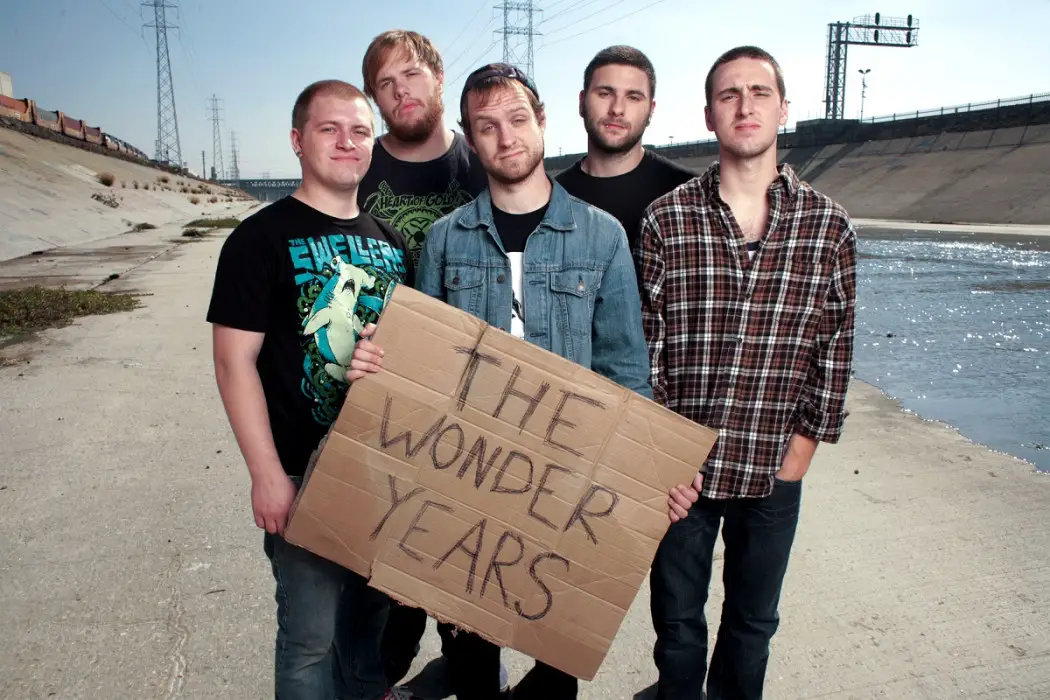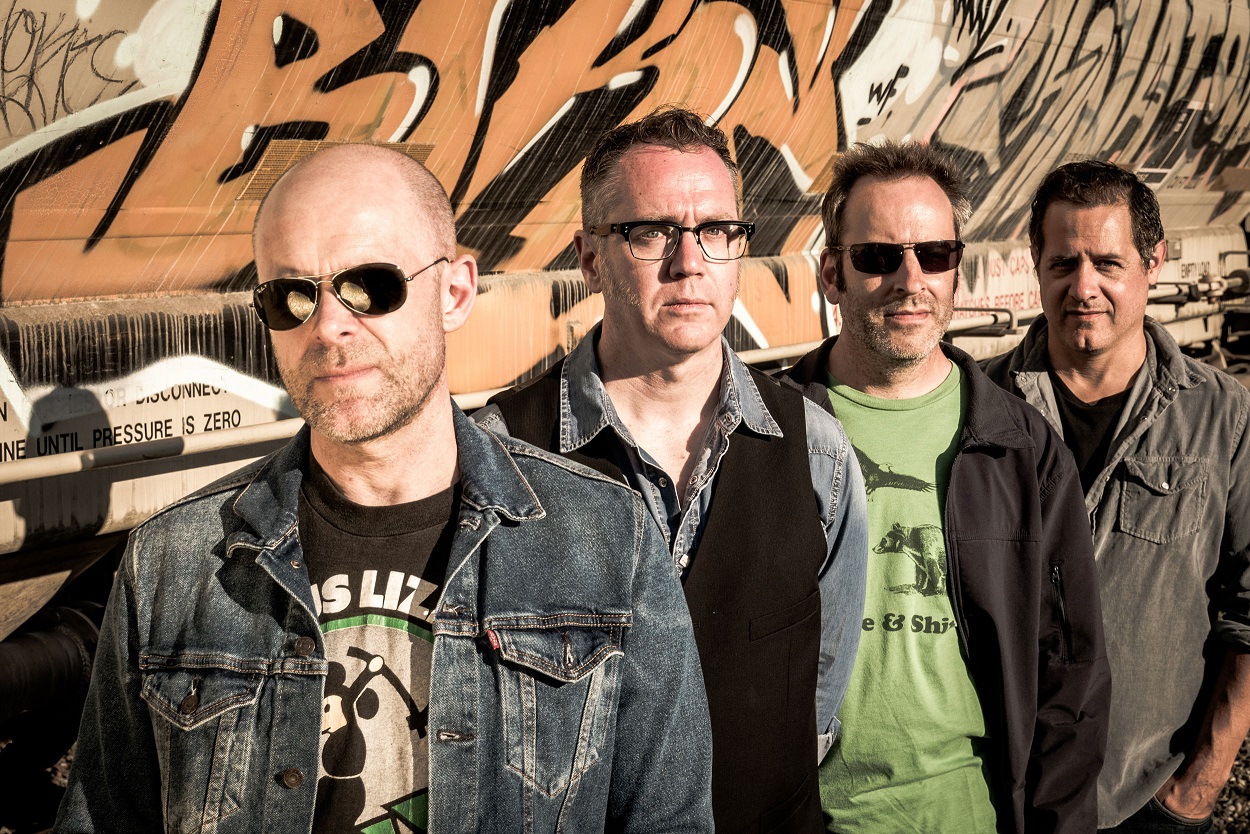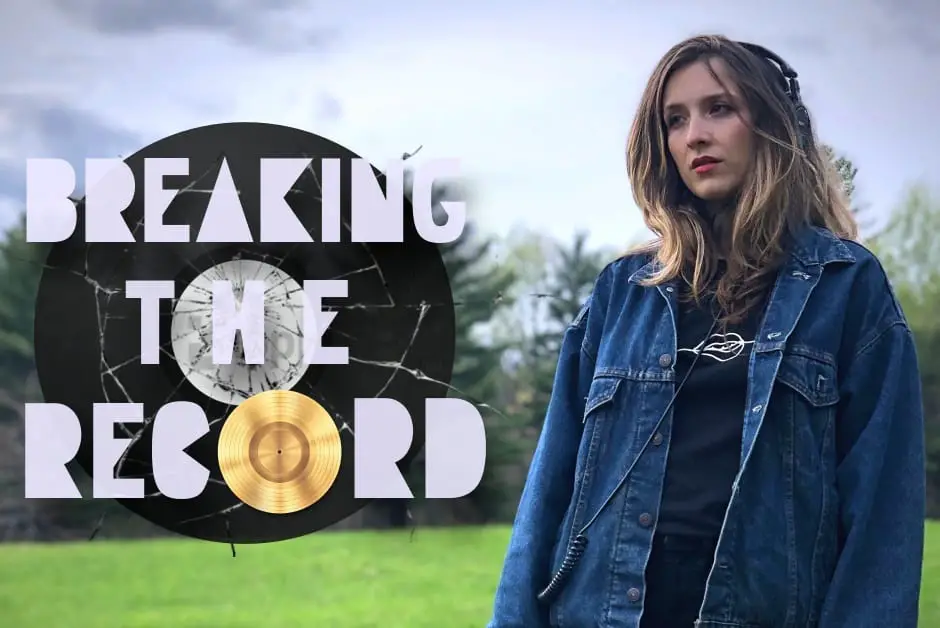A decade ago The Wonder Years released ‘Suburbia I’ve Given You All and Now I’m Nothing,’ an album that signified a major shift for pop-punk and has themes that remain relevant to fans who have stuck with the band and younger people who may just be wading into the band’s discography.
Stream: “And Now I’m Nothing” – The Wonder Years
America this is quite serious.
America this is the impression that I get from looking in the television set.
America is this correct?
It’s easy to read Allen Ginsberg’s “America,” with his sprawling criticisms of the United States, and believe that it’s just that: a critique. Yet, deep in the poem, when Ginsberg speaks about going to Communist Cell meetings and meeting Marxist politician Israel Amter, it’s clear that it’s a plea to improve, especially in cases that were controversial at the time (i.e. The Scottsboro Boys, Sacco and Vanzetti, etc.). While it may not seem like the most obvious poem to inspire a pop-punk band from Philadelphia, the yearning to improve (both oneself and one’s community), nostalgia, and frank lyricism makes it the perfect jumping off point for The Wonder Years’ Suburbia I’ve Given You All and Now I’m Nothing (Hopeless Records), which was released a decade ago this week.
In a 2018 interview with Vice, The Wonder Years’ vocalist Dan Campbell said that revisiting “America” while writing Suburbia forced him to look more critically at his hometown and notice drug epidemics, police corruption, and small businesses struggling to stay afloat. “I remember thinking how this poem is saying these things about America that were echoing these much smaller-scale versions that I was seeing being back in my hometown for the first time,” he told Vice.
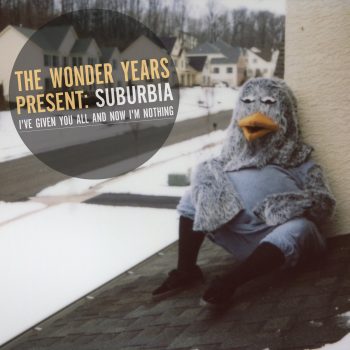
Taking a blunt approach skyrocketed The Wonder Years from a scrappy and exciting band from Philadelphia to a massively influential band, whose influence stretched far beyond just the pop-punk scene (especially with the success of their follow-up The Greatest Generation) that would later see the band receiving write-ups in eternally hip outlets like Grantland and Pitchfork. In 2012, it felt impossible to scroll through tumblr and not see screencaps of the “Came Out Swinging” video or someone creating fan art with lyrics from “Local Man Ruins Everything.”
It’s not about forcing happiness
It’s about not letting sadness win
Ultimately, a love-hate relationship with your hometown isn’t necessarily the most revolutionary idea for a pop-punk band to explore. A year before, A Day to Remember would release “All Signs Point to Lauderdale,” which includes the instantly quotable and almost laughable opening line: “I hate this town.” Even Green Day spoke about this sense of coming to grips in 1991’s “Welcome to Paradise,” but so many bands that seemed to make their sense of Suburban hopelessness in the following decade seemed clearly influenced by The Wonder Years, and their brand of catchy and clean hardcore-inspired pop-punk that had more of an edge to it, than songs that sounded extra crisp and polished.
Growing up means
Watching my heroes turn human in front of me
And the songs we wrote at 18
Seem short-sighted and naïve

Revisiting Suburbia at 27, the album is bleaker than first hearing it as a late teenager. First hearing a song like “Came Out Swinging” at the end of high school or start of college, there’s a sense of excitement and promise. The bridge’s promise of “getting better” is exciting, and The Upsides’ promise of not-being-sad-anymore still felt fresh and relevant, even if there were a few more doubts, but coming back to the album, a little more weathered and wiser, some of the darker moments tend to ring truer. “Coffee Eyes,” while a fitting tribute to nights spent at diners, is a staunch reminder that teenage traditions die, as “friendships dissolve in the booth on the back wall.” The three part title track (divided into the songs “Suburbia”, “I’ve Given You All”, and “And Now I’m Nothing”) shows not only the mistreatment of the homeless, dying local business, and police carelessness, it gets to the album’s title statement, which was the same as Ginsberg’s: “I’m putting my shoulder to the wheel.” I want this place to be better. I want to be better. I’m going to look for improvement.
The Wonder Years would go on to explore much more serious themes as their albums progressed.
The Greatest Generation closed out what fans refer to as “The Depression Trilogy,” while expanding on some of the themes laid on Suburbia. No Closer to Heaven would explore death, loss, religion, and take on the pharmaceutical industry’s part in the opioid epidemic. Sister Cities would take on a more united ideology, while singing about struggling with finding a voice and finding ways to create a better impact on the world. Perhaps we wouldn’t be here if not for both the magnitude the Suburbia wrought and the themes that were subtlety laid.
It’s likely that a teenager or even someone in their early 20s could hear Suburbia and still be excited by the promise of the road (“Came Out Swinging”), late nights with friends (“Summers in PA”), and even get caught up in some of the petty scene arguments (“My Life as a Pigeon”), but the longer you live with this album, the clearer some of the bleaker parts come. Life continues, and sometimes, the hard things stay hard, but Suburbia is ultimately an album of hope.
— —
:: stream/purchase Suburbia here ::
— — — —
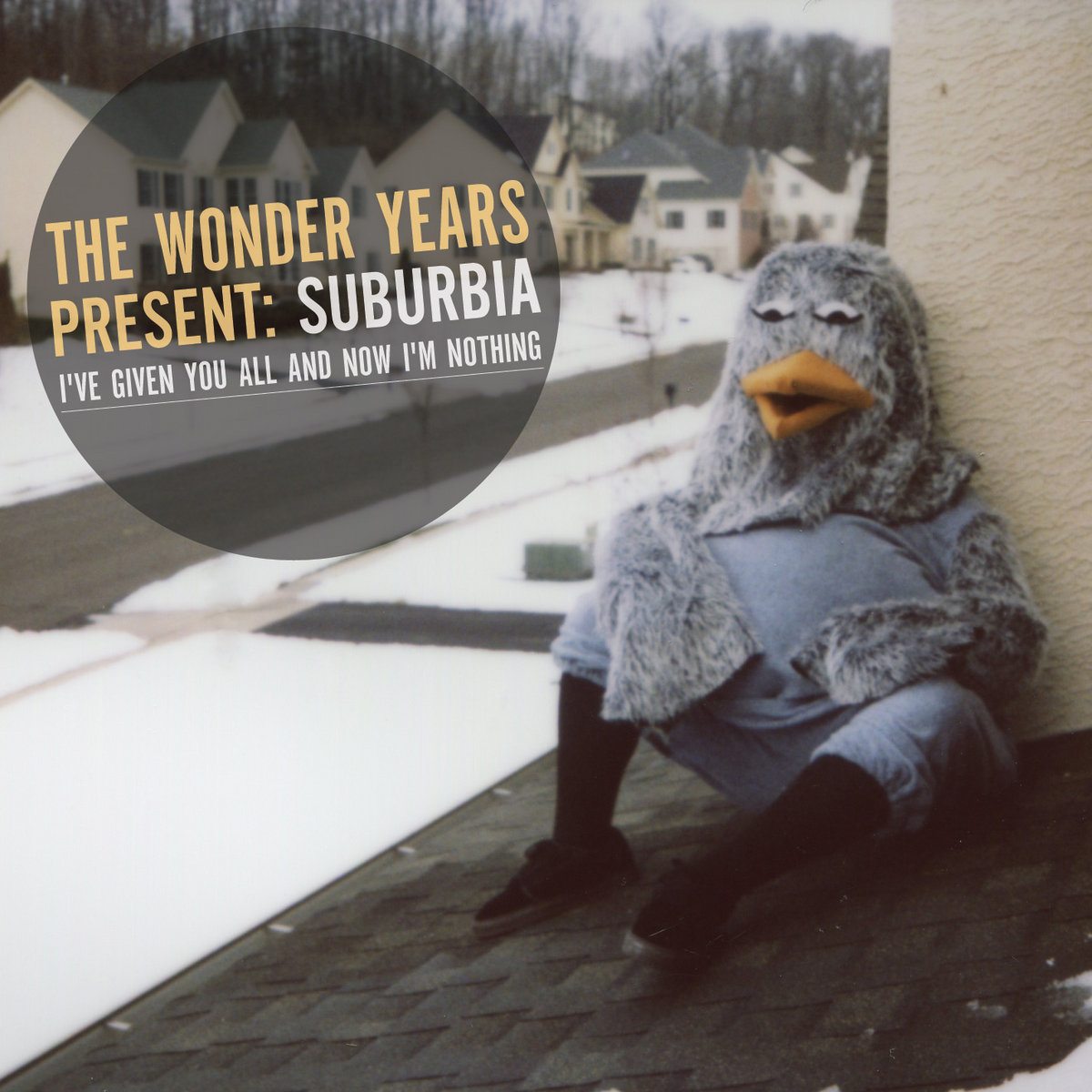
Connect to The Wonder Years on
Facebook, Twitter, Instagram
Discover new music on Atwood Magazine
? © The Wonder Years
Suburbia
an album by The Wonder Years

